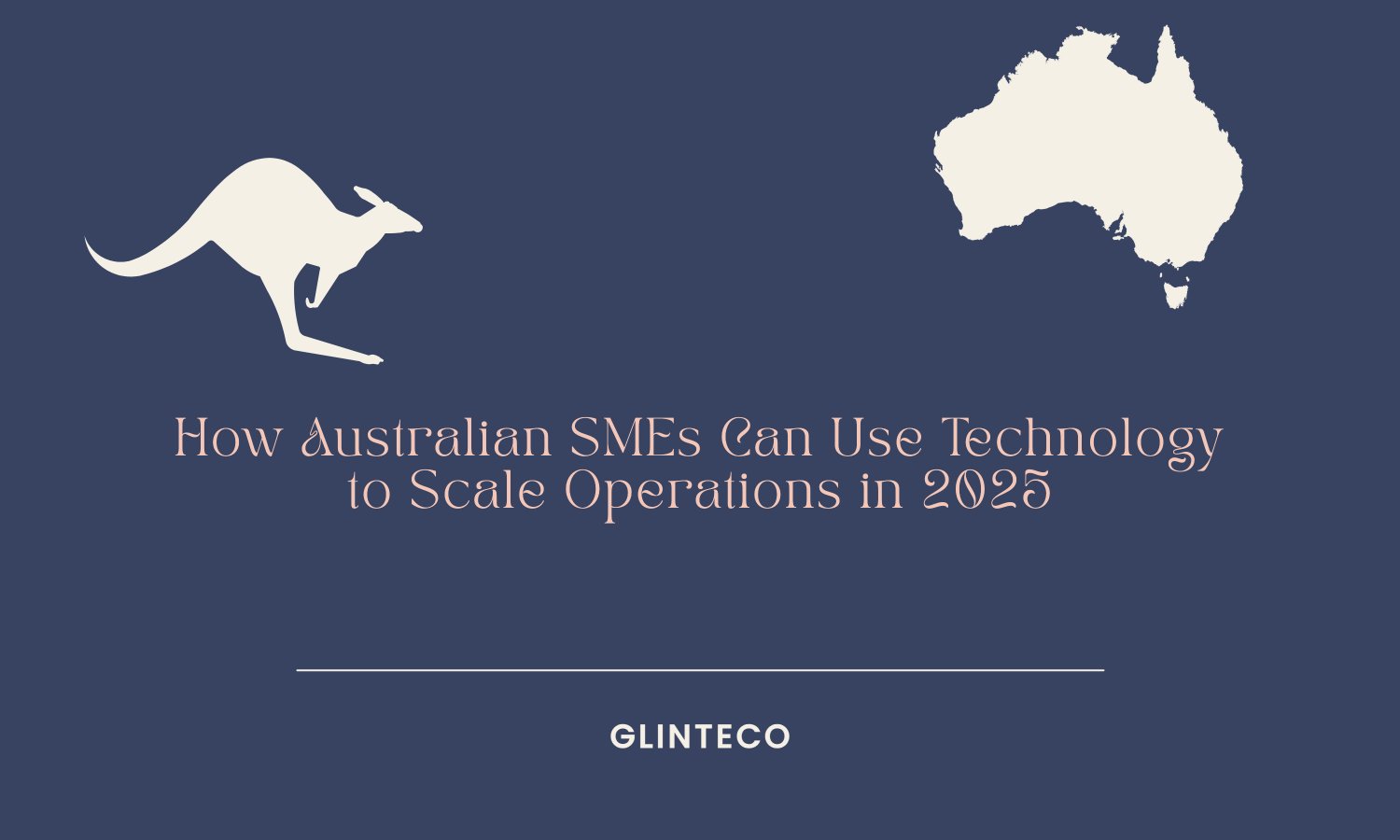How Australian SMEs Can Use Technology to Scale Operations in 2025
By hientd, at: Feb. 21, 2025, 8:50 p.m.
Estimated Reading Time: __READING_TIME__ minutes


In 2025, Australian small and medium-sized enterprises (SMEs) are embracing technology like never before. From AI-driven tools to cloud computing, these innovations are reshaping how businesses operate, making them more efficient and competitive.
Take Splose, for example. This Adelaide-based start-up offers practice management software for health practitioners, automating tasks like appointment bookings and note-taking. With over 15,000 customers across Australia, New Zealand, and the UK, Splose exemplifies how adopting new technologies can drive growth and streamline operations.
Moreover, a significant number of Australian SMEs are planning to increase their adoption of new technology, AI, and cybersecurity to enhance efficiency, productivity, and competitiveness.
In essence, by integrating advanced technologies, Australian SMEs are not just keeping up with the times—they're setting the pace for future business innovation.
Embracing Artificial Intelligence and Automation
AI and automation are revolutionizing business operations across various sectors. A significant number of Australian SMEs are planning to increase their adoption of new technology, AI, and cybersecurity to enhance efficiency, productivity, and competitiveness.
Sydney-based fintech company Rich Data Co specializes in AI-driven data solutions for business and commercial lending. Founded in 2016, the company provides banks with dynamic, ongoing credit assessments, moving beyond traditional snapshot evaluations. This technology enables better management of lending decisions and regulatory requirements. In 2025, Rich Data Co completed a $37 million Series B funding round to fuel its expansion into the US market, highlighting the global potential of AI-enhanced financial services.
Leveraging Data Analytics for Informed Decision-Making
Founded during the COVID-19 pandemic, Melbourne-based start-up Restoke.ai offers an AI-powered platform designed to help restaurants manage costs and operations more efficiently. The platform integrates existing restaurant systems to automate aspects such as food costing, inventory, team management, and accounting. By providing insights into expenses and identifying opportunities for cost savings and profit growth, Restoke.ai claims to save restaurants and bars more than $8,000 a week in operating costs within as little as four weeks. In December 2024, Restoke.ai secured a $5.1 million funding round led by ANZ venture capital firm Rampersand to expand its product suite and launch into overseas markets, starting with the US.
By integrating data analytics tools, businesses can optimize inventory management, forecast demand accurately, and personalize customer experiences. This strategic use of data not only enhances operational efficiency but also fosters customer loyalty and drives revenue growth.
Investing in Cybersecurity Measures
An online retail company experienced a DDoS attack that rendered their website inaccessible for six hours. The attack, executed through compromised IoT devices, resulted in significant financial losses:
- Recovery Costs: $41,000
- Business Interruption: $142,500 in lost sales
- Incident Response Expenses: $43,000
This incident underscores the necessity for SMEs to implement robust cybersecurity measures and have an incident response plan in place.
Implementing robust cybersecurity protocols, such as AI-powered threat detection systems and regular staff training, can mitigate risks and safeguard business assets. Proactive investment in cybersecurity not only prevents potential breaches but also enhances the company's reputation in a security-conscious market.
Ransomware Attack on a Regional Restaurant
A restaurant in regional New South Wales fell victim to a ransomware attack that compromised their main server, blocking access to their system. The attackers demanded a ransom to restore functionality. This case highlights the vulnerability of SMEs to ransomware and the importance of regular data backups and employee training to recognize phishing attempts.
Adopting Cloud Computing for Scalability
Cloud computing offers SMEs scalable resources and flexibility, enabling them to adjust to market demands without significant capital investment. The adoption of cloud-based solutions supports remote work, facilitates collaboration, and reduces IT infrastructure costs. This transition allows businesses to focus on core activities while leveraging advanced technologies to drive growth.
A study investigating cloud computing adoption among Australian SMEs revealed a growing trend of integrating cloud services into traditional business activities. Factors such as cost savings, enhanced flexibility, and improved collaboration were identified as primary drivers for this shift. The research highlighted that SMEs adopting cloud computing experienced increased competitiveness and operational efficiency.
Exploring Emerging Technologies
In December 2024, the government announced an $18 million investment through the CTCP to support quantum technologies. This funding targets four key areas: enhancing biosecurity, improving First Nations health outcomes, optimizing supply chain logistics, and strengthening energy networks. The program encourages industry-led collaborations, offering up to $5.25 million for feasibility projects commencing in January 2025.
Looking ahead, Australian SMEs are well-positioned to pioneer advancements in emerging technologies. The government's investment in quantum computing aims to place Australia at the forefront of innovation, offering SMEs opportunities to solve complex problems at unprecedented speeds.
Additionally, the integration of Internet of Things (IoT) devices is transforming industries such as agriculture, where sensors and data analytics enhance productivity and sustainability. Embracing these technologies can open new markets and drive competitive advantage.
Fostering a Culture of Innovation
To fully capitalize on technological advancements, SMEs must cultivate a culture of innovation. This involves continuous learning, encouraging creative problem-solving, and staying abreast of industry trends. Engaging with innovation hubs and participating in tech communities can provide valuable insights and collaboration opportunities.
Conclusion
In 2025, technology serves as a catalyst for Australian SMEs aiming to scale their operations. By strategically integrating AI, automation, data analytics, and other emerging technologies, businesses can enhance efficiency, make informed decisions, and maintain a competitive edge. Proactive investment in these areas, coupled with a commitment to innovation, will position SMEs for sustained growth in a dynamic economic landscape.
Contact us today for a free consutation time to discuss further...





